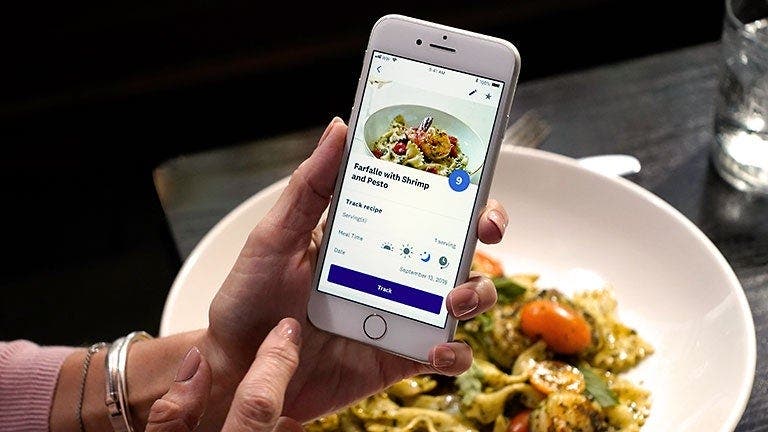The 7 best ways to lose weight, according to science


When you’re ready to lose weight, you want to do it once and for all - the right way. But the lose-gain-lose-gain cycle? That’s a path that no one wants to take.
Your plan to lose weight should incorporate habits you’ll be able to continue for good, says Megan Williams Khmelev, M.D., a board-certified obesity and family medicine physician in San Antonio, Texas.
That's why a WW membership helps you build lifelong healthy habits, giving you the tools and support you need to eat better, shift your mindset and make time for movement.
What's included in a WW membership?
There are certain habits that will help you succeed on your weight loss journey, both now and in the future. Here are the best ways to lose weight, based on science.
1. Don’t try to lose too much, too soon
If you try to lose a lot of weight fast, it’s easy to become discouraged. That’s because it’s hard to achieve extreme goals. Even if you’re able to stick with a highly restrictive diet temporarily, will it be sustainable over the long haul? Probably not. The best rate to aim for is about one to two pounds of weight loss a week, according to the Centers for Disease Control and Prevention (CDC).
Dropping weight too quickly could also increase your risk of developing gallstones and cause you to lose the muscle mass you need to feel strong and maintain a healthy metabolism, according to Jill Weisenberger, a registered dietitian nutritionist and author of Prediabetes: A Complete Guide. Also, crash dieting doesn’t give you time to form the new habits and routines that will help you keep that weight off, she says.
2. Focus on foods that are high in protein and healthy overall
“In a general sense, lower carb, higher protein is the goal,” Williams Khmelev says. Protein helps you feel more satisfied during and between meals. Also, eating a higher-protein diet helps you preserve lean body mass during weight loss, research shows. It’s why Williams Khmelev generally recommends that her patients strive to get at least 30 percent of their daily caloric intake from protein. Research supports that approach: eating a higher-protein diet can help you lose weight and feel more satiated than if you ate a diet that was lower in protein, according to a 2015 review of existing research published in The American Journal of Clinical Nutrition.
3. Keep track of what you eat
Whether you use a digital tool like the WW app or a written log, research has found that recording what you eat can be valuable. “This is one of the strongest evidence-based ways to facilitate weight loss,” Williams Khmelev says. For example, one study published in the Journal of the Academy of Nutrition and Dietetics found that women who kept food journals over the period of a year lost about four percent more weight than those who didn’t. The method you choose is ultimately up to you, but tracking your food can make a real difference.
4. Be as active as possible
Life and work have a funny way of making it hard to exercise, but if you want to lose weight and keep it off, activity can really help. When combined with eating better, increasing your activity levels can lead to 20 percent greater weight loss than changing your eating habits alone. And research confirms that physical activity is the single best predictor of who keeps weight off and who doesn’t. It could be why the NHS currently recommends at least 150 minutes of moderate-intensity aerobic exercise a week, as well as strength training at least twice a week.
Not there yet? Start by trying to move a little more and sit a little less each day. Then focus on finding an activity you’ll like doing, since “the exercise that you enjoy gets done,” Williams Khmelev says. Also try thinking about exercise as a way to relieve stress and be healthier—not just as a means to lose weight, she says.
5. Try to get more sleep
Does this one surprise you? Sleep may seem random when it comes to weight loss, but research has shown that it’s a vital component. One study published in the Annals of Internal Medicine found that people who followed a reduced-calorie diet and slept for just five and a half hours a night lost less body fat than those who slept for eight and a half hours. Hormones may be a factor: research has found a link between not getting enough sleep and increased production of ghrelin, a hormone that makes you hungry.
Everyone’s sleep needs are different, but the National Sleep Foundation recommends that most adults get between seven and nine hours a night. If you don’t fall in that range, you can start by going to bed 15 minutes earlier to see how you feel. Still tired? Push your sleep time back another 15, and keep going until you find yourself waking up feeling refreshed.
6. Do what you can to lower your stress levels
We get it: just hearing that you need to stress less feels stressful! But it can definitely have an impact on your weight loss efforts. One recent study published in the journal Obesity analysed body weight and stress and found that people with higher levels of the stress hormone cortisol were more likely to weigh more, have larger waist circumferences, and have higher BMIs than their less-stressed counterparts.
Stress management looks different for everyone, but it could be as simple as meditating for a few minutes each morning, taking a yoga class on weekends, or getting regular exercise (which, as mentioned above, is great when you’re trying to lose weight).
7. Be kind to yourself
It’s easy to fall into a pattern of negative self-talk, especially when you’re not getting the weight loss results you want. But beating yourself up isn’t helpful. What is? Treating yourself a little kindness. Self-compassion has been shown to help people maintain their weight loss—one reason Weisenberger emphasises it in her practice.
“I ask my clients to listen for their negative self-talk and to change it,” she says. So, instead of telling yourself: "I missed my walk today. I just can’t get into an exercise groove" try: "Today was crazy busy, and I’m disappointed that I didn’t get out there. But I managed to fit in two walks this week, and I can plan another for the weekend.” Being honest and aware of your limitations—without being hard on yourself—will make your weight loss and wellness journey happier—and you more successful.
Ready to give WW a try? Click here.
